Expert Tips for Removing Stubborn Hard Water Stains in Your Bathroom
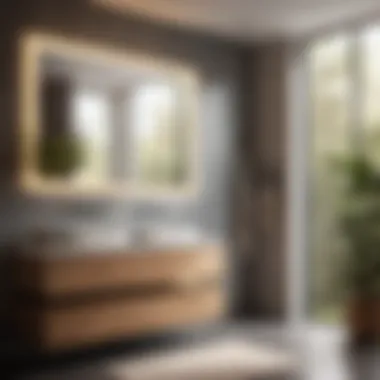

Materials:
- White vinegar (1 cup)
- Baking soda (1/2 cup)
- Lemon juice (1/2 cup)
- Spray bottle
- Microfiber cloth
- Scrub brush
DIY Steps:
- Prepare Vinegar Solution: Mix white vinegar with water in a spray bottle.
- Apply Vinegar Solution: Spray the solution onto hard water stains in your bathroom.
- Let it Sit: Allow the solution to sit for 10-15 minutes to penetrate stains.
- Scrub with Baking Soda: Sprinkle baking soda on the stains and gently scrub with a scrub brush.
- Rinse with Lemon Juice: Squeeze lemon juice over the baking soda paste to create a foaming reaction.
- Scrub and Rinse: Use a microfiber cloth to scrub the area and then rinse thoroughly.
Technical Aspects:
- Tools: Spray bottle, scrub brush, microfiber cloth.
- Timing: Allow 10-15 minutes for vinegar solution to work; rinse promptly after cleaning.
- Critical Techniques: Gentle scrubbing to avoid damaging surfaces; ensure thorough rinsing.
DIY Project Process:
- **Start by preparing the vinegar solution and applying it to the stains for effective removal.
- Apply baking soda for added scrubbing power and finish with lemon juice to brighten surfaces.
- Remember to use proper scrubbing techniques and rinse thoroughly to avoid residue.
Troubleshooting Tips:
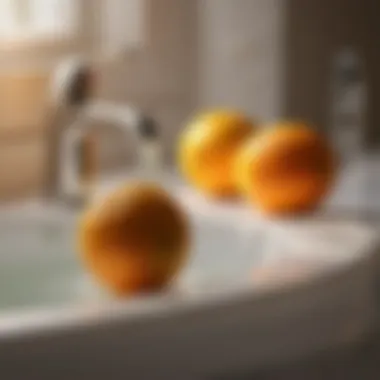
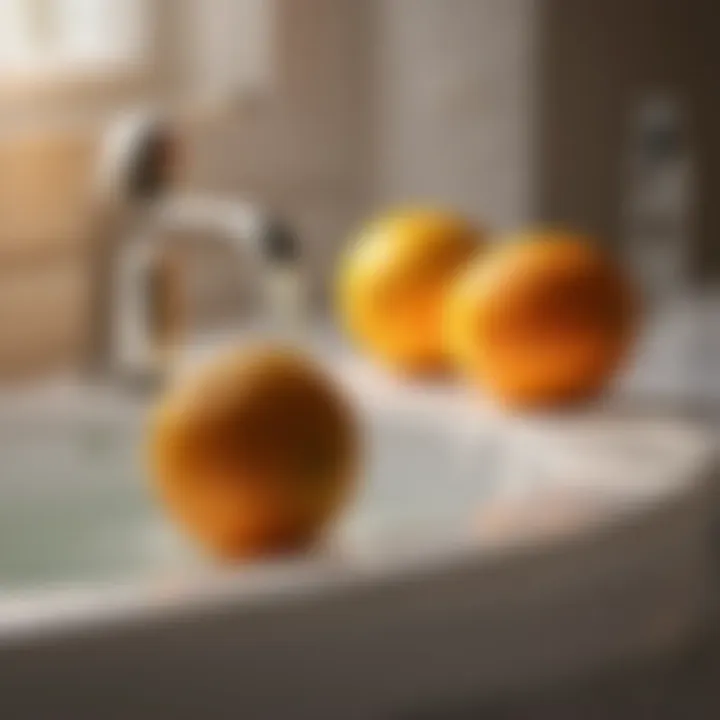
- If stains persist, repeat the process or consider increasing vinegar concentration.
- For stubborn stains, let the solution sit longer before scrubbing for better results.
Understanding Hard Water Stains
What Are Hard Water Stains?
Hard water stains are mineral deposits left behind when water evaporates on surfaces, primarily composed of calcium and magnesium. These stains appear as white, chalky residue on bathroom fixtures such as sinks, faucets, and shower doors, posing a challenge to homeowners seeking a pristine bathroom environment. Understanding the composition and characteristics of hard water stains is vital in formulating effective cleaning strategies that target these specific minerals and remove them effectively from surfaces.
Causes of Hard Water Stains
The primary cause of hard water stains is the presence of minerals like calcium and magnesium in the water supply. When water containing these minerals dries on surfaces, it leaves behind unsightly marks that can be tough to remove. Other contributing factors include inadequate ventilation leading to slow evaporation, prolonged exposure to hard water, and using harsh cleaning products that contribute to the buildup of mineral deposits. Recognizing these causes is essential in preventing the recurrence of hard water stains and maintaining a sparkling bathroom.
Impact of Hard Water Stains on Surfaces
Hard water stains not only mar the appearance of bathroom surfaces but can also cause long-term damage if left untreated. The minerals in hard water can corrode fixtures, etch glass surfaces, and degrade grout, leading to costly repairs and replacements. Moreover, hard water stains diminish the aesthetic appeal of bathrooms, creating an unkempt and neglected impression. Understanding the implications of hard water stains on surfaces emphasizes the importance of implementing proactive cleaning measures to preserve the integrity and beauty of bathroom fixtures.
Choosing the Right Bathroom Cleaner
In this comprehensive guide on removing hard water stains with a bathroom cleaner, the section on 'Choosing the Right Bathroom Cleaner' plays a pivotal role in achieving optimal results. Selecting the appropriate bathroom cleaner is crucial for effectively tackling hard water stains, ensuring a spotless and gleaming bathroom. By understanding the specific elements, benefits, and considerations associated with choosing the right cleaner, homeowners can streamline the cleaning process and achieve exceptional outcomes.
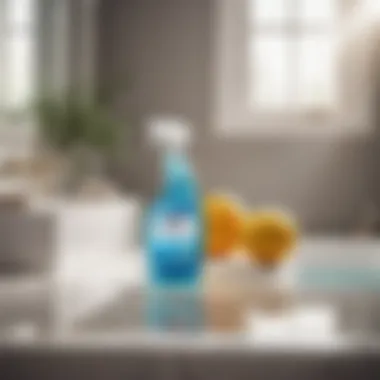
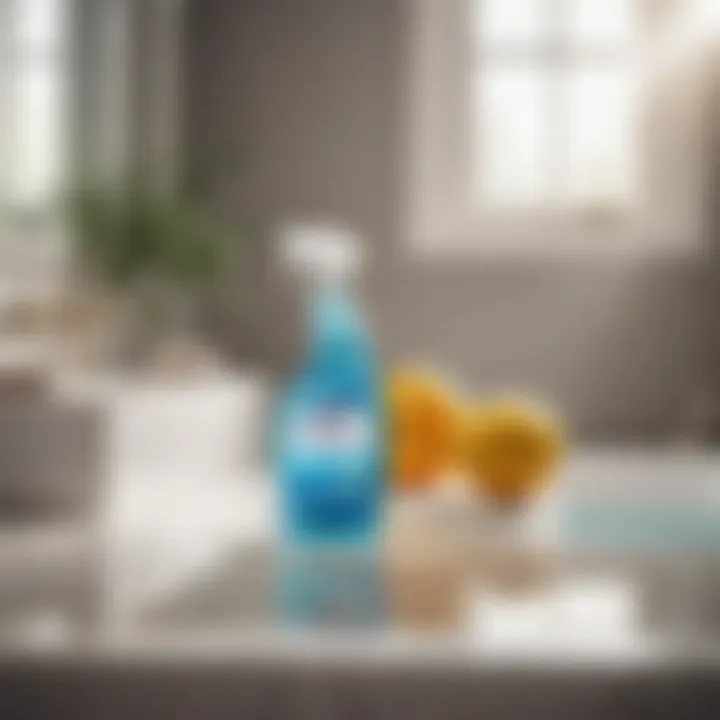
Types of Cleaners for Hard Water Stains
When it comes to combating hard water stains, various types of cleaners are available on the market. From acidic solutions to abrasive cleaners, each type offers unique benefits for removing stubborn stains effectively. Homeowners can opt for acidic cleaners that dissolve mineral deposits or abrasive cleaners that physically scrub away tough stains. Understanding the characteristics of each type and their compatibility with different surfaces is essential for selecting the most suitable cleaner for specific stain removal requirements.
Ingredients to Look for in a Bathroom Cleaner
The efficacy of a bathroom cleaner in removing hard water stains is often determined by its ingredients. Key ingredients to look for in a powerful cleaner include citric acid, vinegar, or hydrogen peroxide, known for their strong acidic properties that break down mineral deposits effectively. Additionally, surfactants and enzymes in cleaners help in lifting and emulsifying stains, ensuring a thorough cleaning process. By carefully examining the ingredients list of a bathroom cleaner, homeowners can make informed decisions to tackle hard water stains with precision.
Eco-Friendly Options for Cleaning Hard Water Stains
For environmentally-conscious homeowners seeking sustainable cleaning solutions, eco-friendly options for removing hard water stains are readily available. Green cleaners, free from harsh chemicals and toxins, offer a safe and effective alternative for maintaining a clean bathroom while minimizing environmental impact. Ingredients such as lemon juice, baking soda, or plant-based surfactants provide natural cleaning power, ensuring a streak-free finish without compromising on effectiveness. By opting for eco-friendly cleaners, homeowners can achieve pristine results while supporting a greener lifestyle.
Effective Application Techniques
In the realm of tackling hard water stains in bathrooms, mastering effective application techniques is paramount for achieving immaculate results. This section delves into the art of using bathroom cleaners efficiently to combat stubborn hard water marks and restore surfaces to their former glory. Understanding the nuances of application can significantly impact the outcome of the cleaning process while also ensuring surfaces are not damaged in the pursuit of cleanliness. By focusing on specific elements such as proper dilution ratios, dwell times, and appropriate tools for application, individuals can maximize the cleaning potential of their chosen bathroom cleaner.
Preparation Steps Before Cleaning
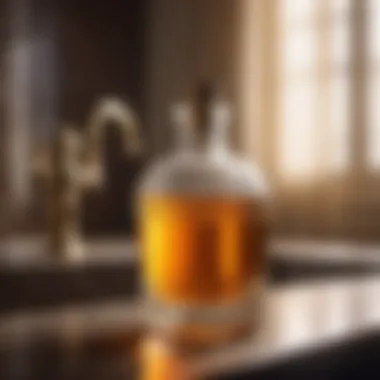
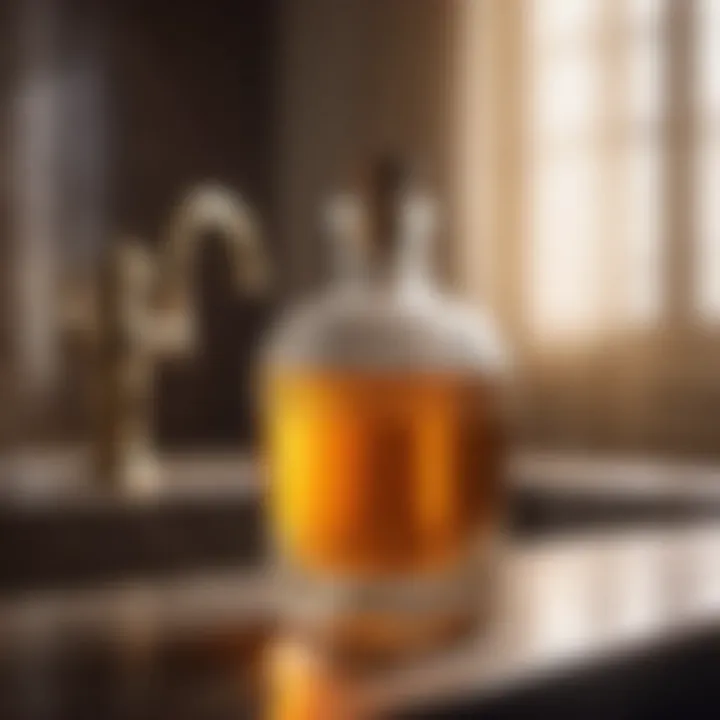
Before diving into the cleaning process, taking adequate preparation steps is crucial to set the stage for success. Clearing the area of any unnecessary clutter, ensuring proper ventilation, and wearing protective gear are foundational steps in preparing for the cleaning task ahead. Assessing the extent of the hard water stains and selecting the appropriate cleaner based on the surface to be treated are essential considerations. Moreover, conducting a spot test in an inconspicuous area can help determine the cleaner's compatibility with the surface, preventing any potential damage or discoloration.
Step-by-Step Cleaning Process
The step-by-step cleaning process is where the magic happens in banishing hard water stains. Starting with the application of the chosen cleaner on the affected areas, allowing it to dwell for a specified time frame enhances its ability to break down the mineral deposits causing the stains. Using gentle scrubbing motions with a soft brush or sponge can aid in lifting off the loosened residues without causing harm to the surfaces. Rinsing thoroughly after cleaning ensures any remnants of the cleaner and dissolved deposits are completely removed, leaving behind a pristine finish that is free from unsightly marks.
Tips for Stubborn Hard Water Stains
For those formidable hard water stains that refuse to budge, employing strategic tactics can turn the tide. Utilizing targeted cleaning techniques such as vinegar or lemon juice solutions for acidic dissolution of mineral deposits can be a game-changer. Investing in specialty abrasive pads or brushes designed for challenging stains can provide the extra muscle needed to tackle stubborn spots effectively. Persistence and patience are key virtues when dealing with tough hard water stains, as repeated applications and diligent scrubbing efforts can gradually erode even the most obstinate marks, unveiling a gleaming surface beneath.
Maintaining a Stain-Free Bathroom
Maintaining a stain-free bathroom is crucial for the longevity and appearance of your bathroom fixtures and surfaces. In this section of the article, we will delve into essential tips on how to keep your bathroom free from hard water stains, ensuring a clean and pristine environment in your living space. By incorporating effective maintenance practices, you can save time and effort in the long run while enjoying a sparkling bathroom that exudes cleanliness.
Preventive Measures for Hard Water Stains
To prevent hard water stains from forming in your bathroom, it is essential to take proactive steps. Installing a water softener can significantly reduce the mineral content in your water, decreasing the likelihood of stubborn stains appearing on your fixtures. Regularly wiping down surfaces with a squeegee or microfiber cloth after each use can also help prevent water spots from forming, maintaining the overall cleanliness of your bathroom.
Regular Cleaning Routines
Establishing a regular cleaning routine is key to keeping hard water stains at bay. Incorporate a mild bathroom cleaner into your weekly cleaning schedule to remove any build-up before it becomes entrenched. Focus on problem areas such as faucets, shower doors, and tiles to prevent hard water stains from becoming noticeable. By consistently maintaining a clean bathroom environment, you can minimize the need for intense scrubbing sessions to eradicate tough stains.
Choosing the Right Products for Ongoing Maintenance
When selecting products for ongoing maintenance, opt for non-abrasive cleaners that are specifically formulated to target hard water stains. Look for cleaners containing ingredients like citric acid or vinegar, known for their effective stain-fighting properties. Additionally, consider investing in a quality microfiber cloth for gentle yet efficient cleaning. By choosing the right products for ongoing maintenance, you can ensure a stain-free bathroom while preserving the integrity of your fixtures and surfaces.







